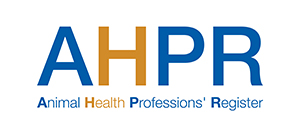Dogs suffer from a wide variety of orthopaedic and neurological conditions. Physio plays a vital role in management of these conditions whether they are treated conservatively or surgically.
PHYSIOTHERAPY FOR COMPANION DOGS
Dogs suffer from a wide variety of orthopaedic and neurological conditions. Physio plays a vital role in management of these conditions whether they are treated conservatively or surgically. As types of operations available have advanced, so has the need for the appropriate pre and post operative rehab. Can also offer nonpharmaceutical pain relief and techniques to improve and hasten both soft tissue and bony healing.
Dogs that have painful or movement restricting condition, or a sub clinical disease, will alter their gait pattern to take the stress off the sore area. These compensatory patterns of movement create muscle imbalance and weakness, shortened soft tissues and altered neural control. Physio assists with increasing and maintaining strength and flexibility, restoring normal movement patterns, regaining lost function and promoting cardiovascular fitness.
PHYSIO FOR WORKING DOGS
In addition to all the conditions that companion dogs can suffer from, working dogs are susceptible to additional stresses and strains. Any loss of performance during the season should be investigated as this may be due to minor musculoskeletal injuries that have gone unnoticed. If theses injuries are left untreated they can cause more serious damage over time. It is also recommended that working dogs have pre and post season or periodic health checks to screen for minor injuries.
SIGNS OF INJURY:
- Acute inflammation, pain, heat, swelling
- Loss of performance or endurance
- Shortened stride
- Taking down poles or not clearing obstacles
- Sensitivity to touch
- Stiffness
- Abnormal posture
- Shifting weight off one leg
- Muscle wastage
- Lameness
- Temperament or behavioural changes
AGILITY AND FLYBALL
High risk sports due to high speeds, twisting, turning, accelerating and braking forces that the dogs are subjected to as well as concussion on landing impact. Can cause a variety of acute and chronic soft tissue injuries, involving muscle tendon, ligament, cartilage or joint capsule.
Weaving is an unusual movement requiring extreme alternate side flexing of the spine predisposing dogs to joint and muscle strains and exaggerated shoulder movements to the end of range, predisposing dogs to bicipital tenosynovitis and shoulder joint capsule strains.
CAUSES OF INJURY
Slipping, falls from equipment, miss-timing, uncoordinated muscle action, impact on landing, collisions, over extension of joints. repetitive stress injuries.
FIELD AND WORKING TRAILS
During training, dogs are expected to perform over many hours in all weather conditions and sometimes over harsh terrain. Fatigue is a contributory factor to sustaining muscle or joint injuries.
TYPICAL INJURIES
Cuts and abrasions, muscle strains, bruising due to collisions, concussion from landing impact, infraspinatus contracture.
OBEDIENCE AND HEEL WORK TO MUSIC
During heel work sustained extended and right side flexed neck postures can lead to muscle fatigue and strain in the neck. this in turn can lead to muscle imbalances lower down the spine and in limbs due to compensatory patterns. Some taught movements in heel-work to music require sustained contractions of the small postural control muscles of the back and limbs, which predisposes them to fatigue and injury.
COMMON CONDITIONS OF A YOUNG DOG THAT PHYSIO CAN HELP
- Hip dysplasia & Elbow dysplasia
- Osteochondrosis dissecans
- Panosteitis
- Patella luxation
- Muscle contractures e.g infraspinatus: gracilis
- Angular limb deformities.
- Common traumatic conditions physio can help with:
- Fractures
- Fibrocartilaginous embolism (spinal stroke)
- Acute and chronic soft tissue injuries, involving muscle, tendon, ligament or joint capsule.
- Severe soft tissue and bony damage following a RTA, possibly resulting in amputation of a limb.
- Joint luxation
- Nerve injuries
- Spinal disc disease
COMMON CONDITIONS OF OLDER DOGS
- Cruciate ligament disease
- Osteo-arthritis
- Spondylitis
- Weight control issues.
- Physio can help with the management of geriatric dogs by maintaining or improving their mobility, flexibility, strength and muscle tone, and providing symptomatic relief for arthritis.






